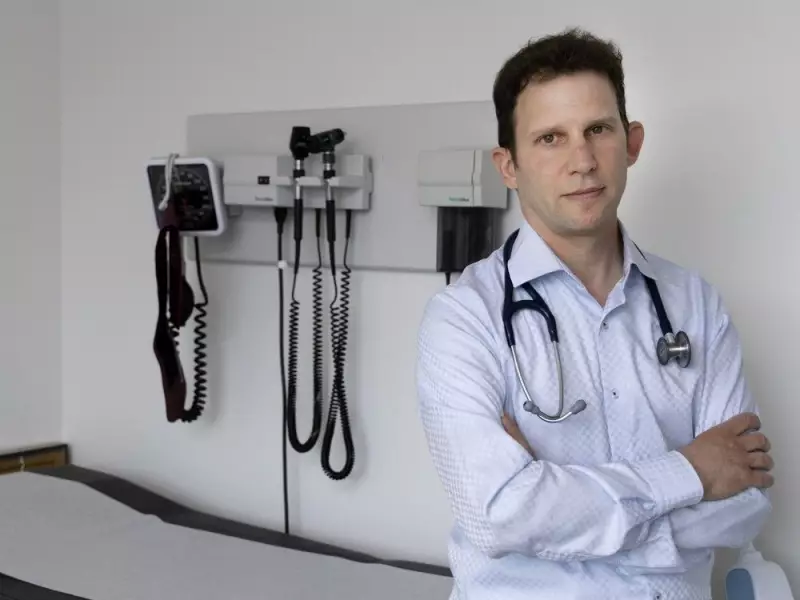
Family doctors in Montreal are issuing an urgent warning that Quebec's Bill 2 will force the closure of numerous primary care clinics across the province, potentially leaving hundreds of thousands of patients without access to medical services.
The Financial Reality Behind Clinic Closures
Twenty physicians operating 18 family medicine groups (GMFs) have signed a formal letter addressed to Dr. Lawrence Rosenberg, president of the CIUSSS de Centre-Ouest-de-l'Île-de-Montréal, and Dr. Ariane Murray, medical director of the département territorial de médecine familiale de Montréal. The document warns that many clinics may need to shut their doors as early as April 21, 2026, due to financial pressures created by the new legislation.
These physicians collectively care for over 400,000 patients in Montreal's west end and provided more than 1 million medical appointments last year alone. Dr. Michael Kalin, who owns Clinique Kildare and represents his district on the DTMF, emphasizes this represents only the beginning of a much larger crisis.
Catastrophic Funding Cuts Looming
According to the letter obtained by The Gazette, the new GMF contract will impose severe reductions in operating funding. Many clinics face losses exceeding 50% of their operating income, with all Primary Care Access Point and orphan-patient funding suspended. Meanwhile, GMF funding will be capped despite patient registrations far exceeding current capacity levels.
Physician overhead contributions are projected to drop by 30 to 70 percent due to decreased billing and doctors leaving Quebec as a direct result of Bill 2. The combination of these factors makes the GMF model financially unsustainable under the new legislation.
"You can just extrapolate that across the island, across the regions, across the province," Dr. Kalin stated. "We're not talking about 1.5 million patients that won't have a family doctor anymore, we're talking about millions more. The government has completely ignored this and forgotten about what we need to operate."
Business Reality Versus Government Claims
The crisis emerges amid ongoing fallout from a new compensation package that the Quebec government imposed on doctors through special legislation adopted in October. The law bypassed traditional negotiations, angering both specialists and general practitioners who now face having 1.5 million Quebecers without family doctors assigned to their clinics with no additional funding.
Dr. Kalin explains the fundamental business problem: "If I don't have the revenue to pay my staff, we'll close. I don't mean this as a threat. I mean it as a business reality. No business is going to continue to operate in the red. At the end of the day it's simple economics."
GMFs operate as public-private partnerships, primarily owned by physicians and financed through both government contributions and revenues from practicing doctors. These funds cover essential overhead including staff salaries, clinic rent, cleaning services, medical supplies, and utilities.
Compounding the financial strain, new contracts will require clinics to extend operating hours from 68 to 86 hours per week while serving an increased patient population assigned under Bill 2, further increasing expenses.
Conflicting Interpretations and Broken Trust
The Quebec government disputes the doctors' claims about losing operating funds. Marie-Christine Patry, spokesperson for the Ministry of Health and Social Services, argues that while doctors currently receive allocations to finance their practices, Bill 2 will direct funds straight to GMFs instead.
The government has committed $50 million to finance clinics starting in April 2026 with an additional $50 million beginning April 2027. Catherine Barbeau, spokesperson for Health Minister Christian Dubé, noted implementation will be postponed until modalities can be discussed with the Fédération de médecins omnipraticiens du Québec.
However, trust remains severely damaged after the passage of Bill 2, making productive negotiations challenging. Doctor-owners maintain the legislation is fundamentally flawed and that minor adjustments cannot mitigate its devastating impact on healthcare access.
Dr. Kalin captures the personal and professional devastation facing clinic owners: "The owners, myself included, have invested hundreds of thousands of dollars into our clinics over the years. Mine opened in 2011 and the time, the finances, the energy that we've poured into these labours of love will go up in smoke by April 1, not willingly, but out of necessity."
The physicians' letter serves as a desperate plea for intervention before what they describe as an impending healthcare catastrophe affects millions of Quebec patients.





